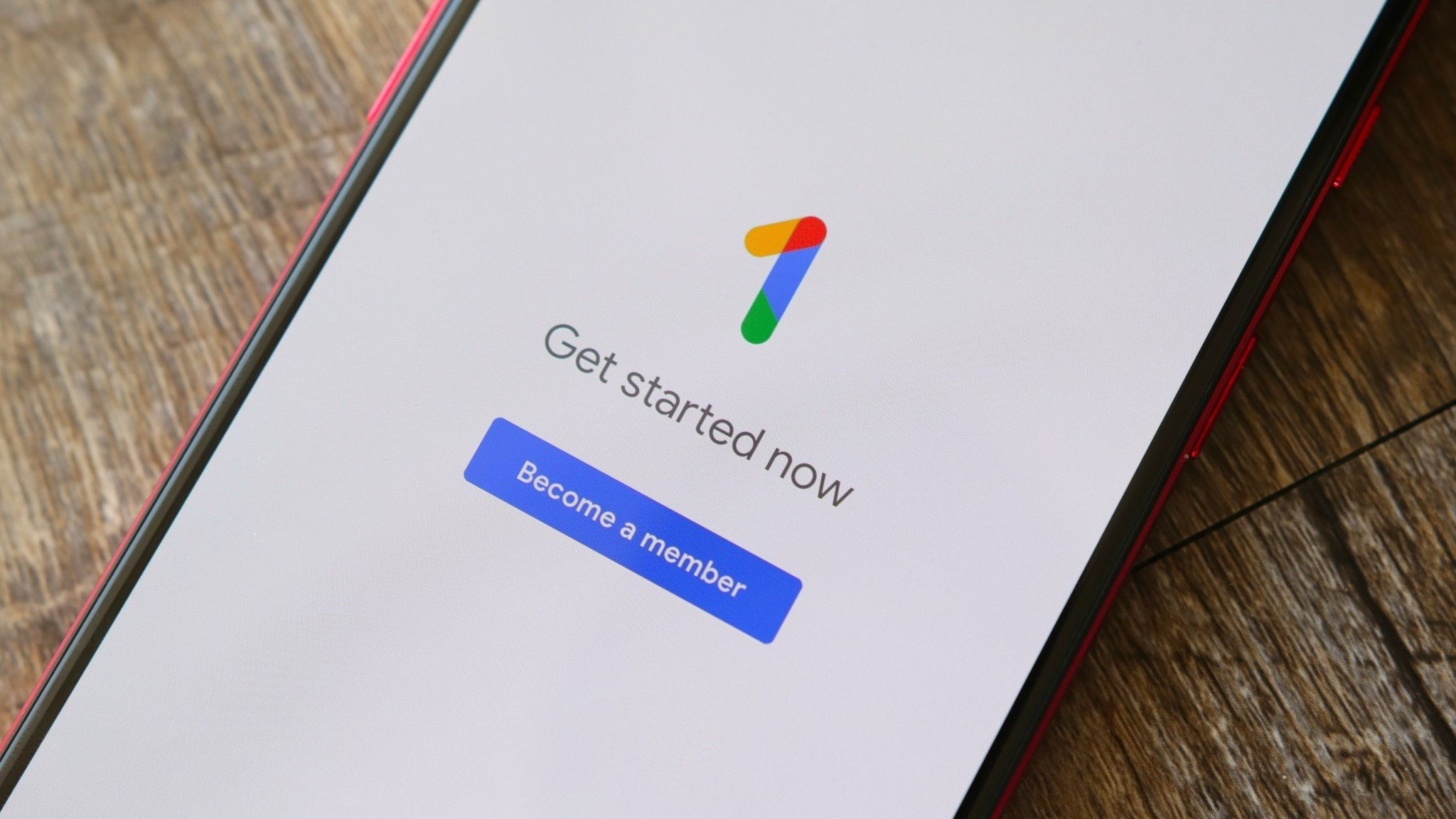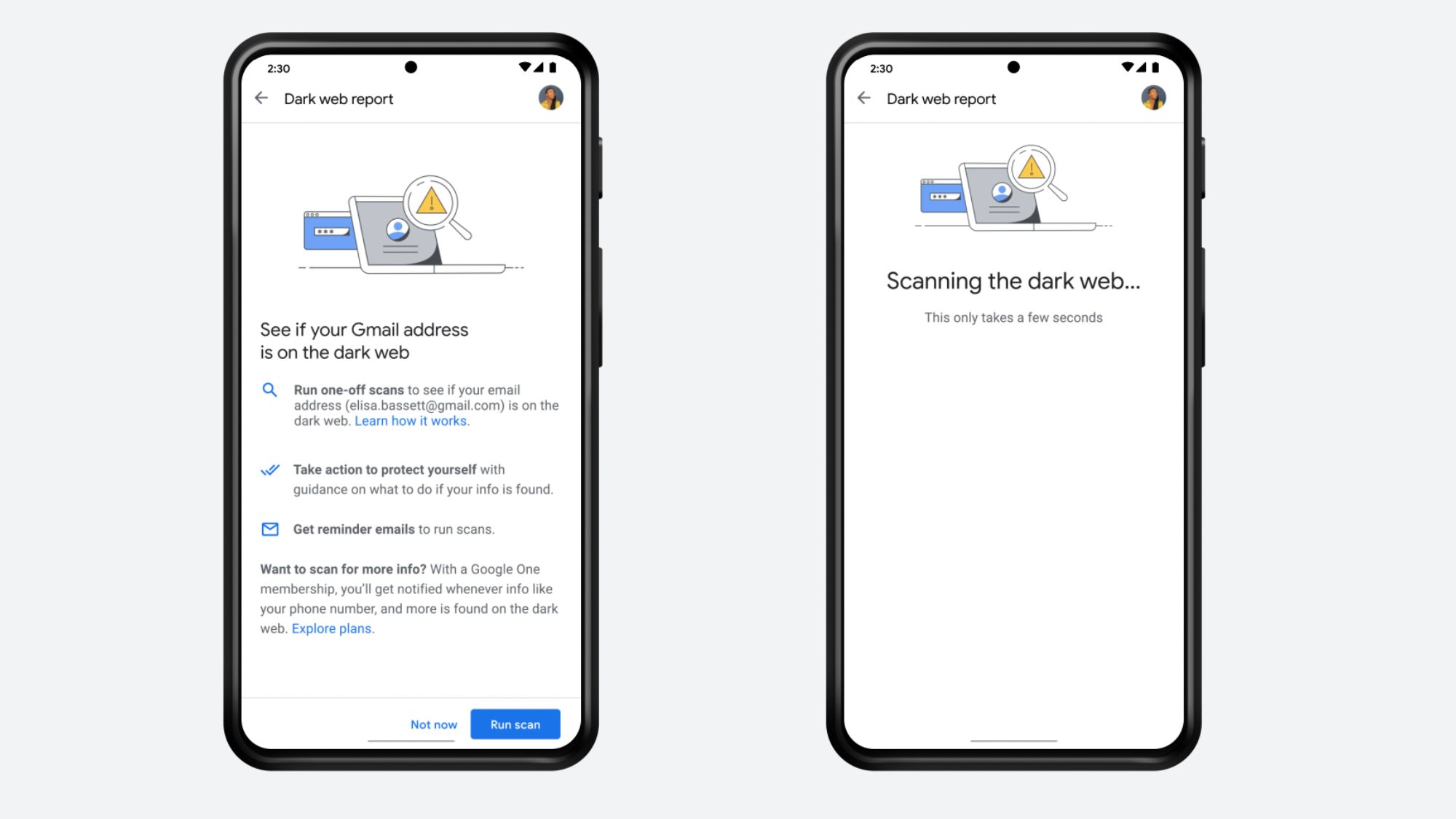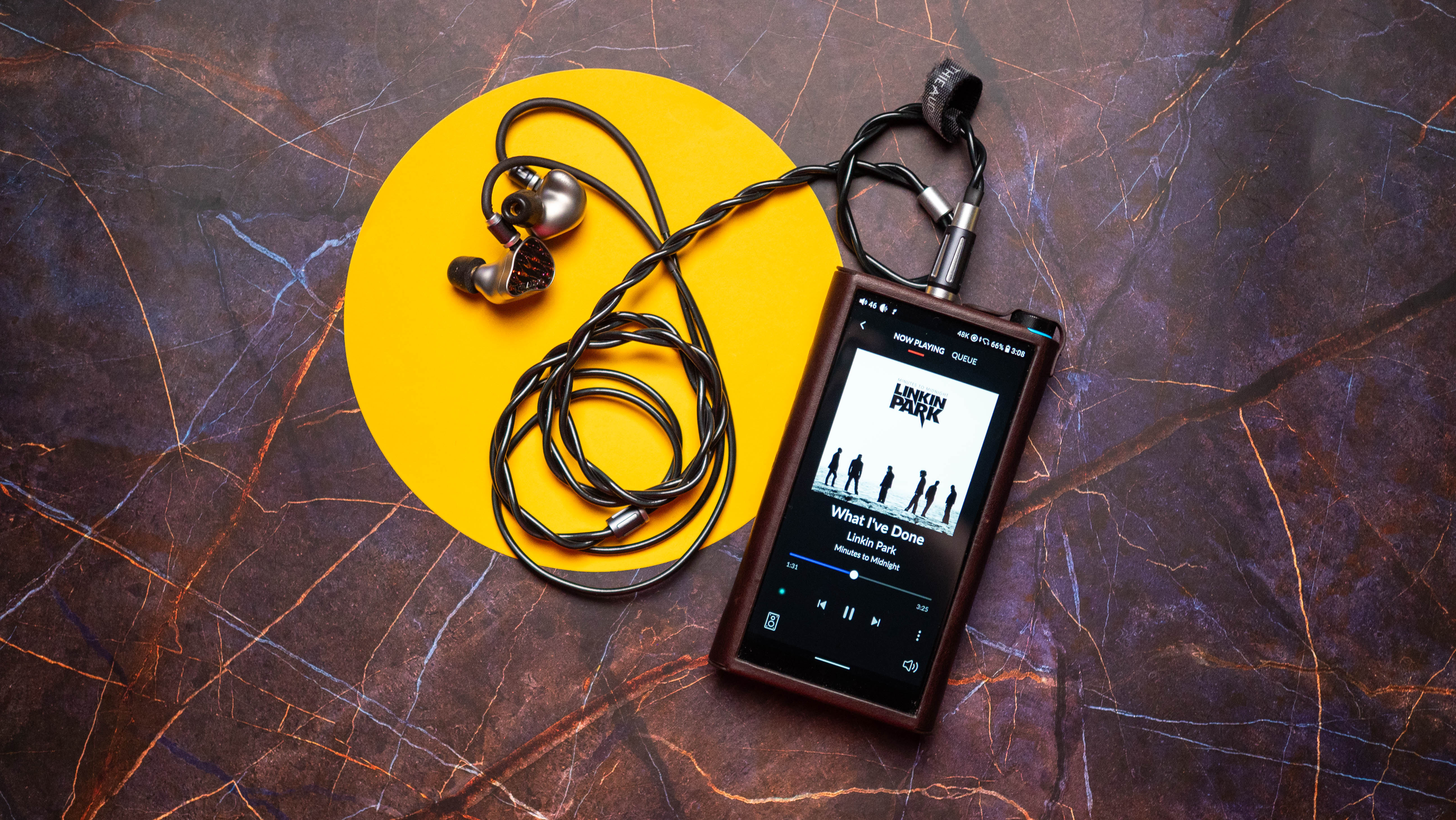Google will soon let everyone know if their information is on the dark web
When the Google One VPN shuts down, dark web reports will be free for all

What you need to know
- Google is discontinuing the Google One VPN service later this year, as it announced in April 2024.
- Some features will be deprecated completely, but the dark web reports feature is staying as a free feature for all Google users.
- Making the functionality free for everyone could help people become more aware of their online safety.
Google One is the company’s subscription service, and it’s fairly all-encompassing. It includes cloud storage, access to Google Photos features, and even artificial intelligence software — if you pay extra. This subscription may have left the company spread thin, as it announced in April that two Google One features will be sunset: the Google One VPN service and free shipping for Google Photos prints. However, one key part of the Google One VPN will be made free for all users later this month.
Google originally said that people weren’t using the Google One VPN service enough, so it would rather focus on other, more desired features instead. To replace it, the company is continuing to offer the Pixel VPN service it promised for a five-year period with the purchase of recent Pixel devices. It’s now available outside the Google One app in anticipation of the One VPN service‘s discontinuation. Users can also turn to third-party VPN services to fill the gap.
Bundled with the Google One VPN is a feature called dark web report, which provides subscribers with insights on their data — specifically account login details and personal information — and whether it has been leaked. As spotted by 9to5Google, this feature will live on after One VPN is discontinued. A banner in the Google One app now explains that starting in late July, the dark web reports will have a new home and won’t require a subscription.
”Dark web report will become available to all users with a consumer Google Account,” the company explains, as reported by 9to5Google. “Dark web report is integrated with Results about you as a combined solution to help users protect their online presence.”
For those unfamiliar, Results About You is an existing Google feature that helps you manage your information on the web. As explained by a support document, this feature will let you find information about yourself that appears in search results. For accuracy and thoroughness, you can enter your name, address, phone number, and other personal identifiers. Google will show you what’s on the web related to you, and can also send you notifications when new results are found.
After reviewing your information, you can request the removal of a result you’re unhappy with. Google might side with you and remove the result if it is on a questionable website and was posted without your consent. However, the company does consider certain types of information valuable to the public and won’t remove URLs from search results that are from governments or media outlets, for example.
Results about you are found in the Google app on mobile or in Google account settings on the web. Now that dark web reports will be found there as well, they’re a bit harder to access than they were in their prior location in the Google One app. Keeping the two features together makes sense, though. If a dark web report tells you that your personal information has been compromised, you might want to then scan Results about you for leaks across the web.
Why dark web reports could be a good move

The exciting thing about Google’s announcement is not that dark web reports are moving — it’s that they’ll soon be free for all. Subscriptions feel like they’re necessary for big tech corporations these days, because they have to show their shareholders that they’re continuously growing. However, I think some things shouldn’t be a paid feature. Functionality that helps people stay safe and protect their privacy should be free.
That’s exactly what dark web reports do. You can upload the following data fields to your profile, and Google can search the dark web to see if they pop up anywhere. If they appear in a dark web report, you know they’ve been compromised.
- Your name
- Address
- Phone number
- Social Security Number (SSN)
- Username
- Password
If these types of personal identifiers were to leak on the dark web, there could be serious consequences. You only get one social security number, and it becoming compromised could result in identity theft and a lifetime of hassle. I’m not saying you should give Google your SSN for dark web reports — I probably wouldn’t in fact — but it just goes to show how vital these identifiers are and how useful the reports can be.
Google previously made dark web reports for email available for all Gmail users, but widespread searches have been an exclusive perk of Google One until now.
Even if you stick to the basics, like name, address, and email, it’ll be helpful to know what kind of data is on the web. For example, if you see that your email is appearing on the dark web, you might want to be more cautious when receiving unsolicited messages and enhance spam filters. Or, you could start to expect junk mail in your mailbox if your address is compromised. And if you upload usernames and passwords, you’ll know if it’s time to change them for your security.
Data leaks happen all the time, as unfortunate as that reality may be. It’s not a question of if your data leaks; it’s a matter of when your data leaks. With the dark web reports becoming available to everyone, you’ll know when it does.
Get the latest news from Android Central, your trusted companion in the world of Android

Brady is a tech journalist for Android Central, with a focus on news, phones, tablets, audio, wearables, and software. He has spent the last three years reporting and commenting on all things related to consumer technology for various publications. Brady graduated from St. John's University with a bachelor's degree in journalism. His work has been published in XDA, Android Police, Tech Advisor, iMore, Screen Rant, and Android Headlines. When he isn't experimenting with the latest tech, you can find Brady running or watching Big East basketball.
You must confirm your public display name before commenting
Please logout and then login again, you will then be prompted to enter your display name.
